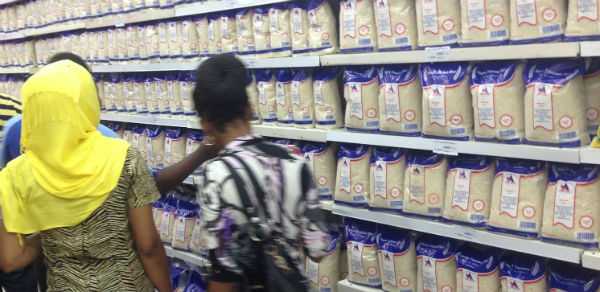 AKTZ Industries Ltd was registered in March 2011 in Tanzania and started its business operations in AKTZ is a value-added business whose supplier-members consist of an expanding network of women and youth local farmers in rural areas.
AKTZ Industries Ltd was registered in March 2011 in Tanzania and started its business operations in AKTZ is a value-added business whose supplier-members consist of an expanding network of women and youth local farmers in rural areas.November 2012.
- The company adds value to locally produced products and links its supplier-members to the supply-value chain. Main products in the market at the moment are rice, eggs and sunflower oil packed Brown Rice and Maize Flour distributed under the Alaska Tanzania brand.
- Alaska Tanzania products are sold in Thirty (30) Supermarket Branches in Tanzania.
- AKTZ has played a significant role in creating employment to women and youth in Tanzania. The company has fifteen (15) employees. Ten (10) are women and five (5) are men. As the company grows, more women and youth will find employment through AKTZ Industries Ltd.
“For intra-trade to develop within the African region, we have to focus on value addition. When we started, most of the products that could easily be sold in Tanzania were imported. We had eggs coming from the UAE and the UK and it is not because we did not have eggs in Tanzania, it is because the eggs we had were sold locally without being packaged and branded. Producing is not a challenge because we have a lot of organic food and a lot of well-processed foods, but when it comes to packaging and branding, that is where most fail.”
“Entrepreneurship looks easy from the outside. People will think, ‘If she can do it, I can do it’ – not knowing that there are lots of sacrifices that have to be put in. I never had the misconception that it was going to be easy. I knew it was going to be tough but not this tough. Sometimes, I ask myself, ‘What have I gotten myself into?’ But I knew what I wanted, and I knew I have to work hard and make sacrifices to grow bigger.”Background:
Jennifer Bash is the Co-Founder and CEO of AKTZ Industries Ltd. a value-added business that sources, packs, brands and supplies locally produced agricultural products to High-end hotels, supermarkets and oil and gas companies. Ms. Bash holds a Bachelor Degree in International Marketing from Baruch College, in the City of New York, USA. Ms. Bash comes from a business background. This background and academic training has given her experience in product supply-chain management.
Bash was recently named the East Africa Young Business Leader of the Year at the 2017 All Africa Business Leaders Awards. She is also a recipient of the 2016 Women’s Award of Excellence in the Agribusiness Sector and a member of The Africa List, a select community of next-generation CEOs.
Before Bash and her husband left Tanzania to study in the US in 2008, the couple launched a poultry business – supplying the meat to hotels and supermarkets.
“At first, we were raising chickens for meat purposes and adding value by cutting the chickens into pieces. But we experienced a lot of challenges. The market demanded frozen chicken. We battled with unreliable electricity and we didn’t have investment like cold rooms. We later switched from rearing chickens for meat, to producing eggs.”
 When the couple relocated to the US, they left the business in the hands of a manager. But by the time Bash returned in 2012, she discovered the company was running at a loss. So she fired the manager and re-launched the business at the end of that year. This was the foundations of Alaska Tanzania.
When the couple relocated to the US, they left the business in the hands of a manager. But by the time Bash returned in 2012, she discovered the company was running at a loss. So she fired the manager and re-launched the business at the end of that year. This was the foundations of Alaska Tanzania.“When I came back, I saw things differently. I came with that… knowledge and exposure you get from other countries. I visited supermarkets across Tanzania and I realised packaging and branding is one of the biggest challenges facing locally-produced products.To source its products, the company works closely with small-scale farmers.
“Our partnership with farmers is a win-win situation. We provide farmers with market access, which they could not access before. That way they are able to increase their productivity and earn an income. On the other hand, we add value by processing, packaging, branding and distributing the produce to our market networks. “We are going to work more with farmers and provide them with linkages to tools, inputs and finance. We will create a cycle so that we will have control over the whole value chain, and this is specifically so that traceability is easy wherever Alaska products are sold.”
References:
- 17/12/2017 Tanzanian businesswoman bullish about branded food
- Master Class. The Bank of Knowledge
- 11/02/2018 YouTube Alaska Tanzania with Jennifer Bash

No comments:
Post a Comment